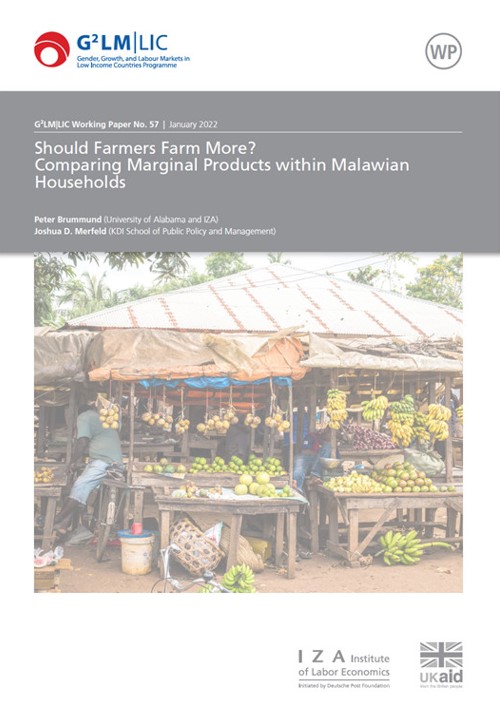It is well known within the field of development economics that farming is an economic activity confronted with risk. It is thought that farmers usually confront the risk of having their crop wasted by natural forces that vary in duration and frequency, by substituting farm- to non-farm labor. In this sense, economic literature would further predict, that while doing so, households are also motivated by the fact that non-farm work tends to be more productive. Thus, policies and efforts in many developing countries have been directed to strengthen the non-farm sector and enable its development.
Analyzing 3 waves of the Malawi Integrated Household Survey, the authors of the Working Paper investigate the impact of risk on the allocation decisions of agricultural households, and confront the claim that the non-farm sector is more productive and that the labor transition to it is motivated by more profits. To undergo their research question, the authors turn to the metric of the Marginal Revenue Product of Labor (MRPL), which describes what a further effective unit of labor brings about in terms of revenue. What they find, is that the MRPL is, on average, higher in farm- than in non-farm labor. Correspondingly, different types of risk influence household’s labor decision and thus prevent them from undergoing the choices that would bring about the higher mean income. Read the detailed Working Paper here.
